“Russian World” in Melitopol: Searches, Kidnapping, and Torture

From the team of Bihus.Info. The facts described below have official proof and have already been described by several media outlets. Our main task, however, is to collect testimonies of eyewitnesses and survivors, which can later be used for law enforcement investigations.
On the morning of February 24, Russia started a full-scale war against Ukraine. Forty days later, on April 4, the Office of the United Nations High Commissioner for Human Rights recorded the deaths of 1,480 Ukrainian civilians and the wounding of 2,195. The UN says these figures could be much higher because the information from the areas experiencing active hostilities comes with a considerable delay. People are being killed by heavy artillery, multiple rocket launchers, and airstrikes. Cases of mass executions of civilians in territories that have been under Russian occupation have already been recorded. A large part of the temporarily occupied Ukrainian settlements have now been liberated by the Ukrainian military, but there is still some Russian presence in certain settlements.
One such settlement is Melitopol. The Russian military seized Melitopol on February 26. There is already a self-proclaimed mayor here, Halyna Danylchenko, while Ukrainian television and Internet connections have been cut off. There are many civilians remaining in the town. They have been resisting the invaders the entire time.

The invaders, in turn, engage in kidnappings, torture, and threats. According to the Melitopol city council, from the first day of the full-scale invasion until April 4, 31 people have already been kidnapped. At the same time, 12 people continued to be held captive by Russians. As early as April 7, the mayor of the city, Ivan Fedorov, stated that he knew of more than 100 cases of people taken prisoners. All those who were released from captivity say that they were pressured to take Russia’s side. It appears that the main task of the invaders is to “induce cooperation” and demoralize the most active residents of Melitopol: journalists, entrepreneurs, and activists.
“A basement, a bag over the head, and tied hands.”
On March 10, a member of the Oblast Council Leila Ibrahimova was kidnapped. The next day, the city’s mayor, Ivan Fedorov, was taken captive. Ibrahimova was released on the same day, the city head was kept in captivity for 6 days. All this time the man was pressured and interrogated for hours at a time, and finally, he was exchanged for nine Russian soldiers.
Two days later, on March 12, armed men came for the activist Olha Haisumova. The woman was kept in the basement with a bag over her head and her hands and feet bound until March 21.
“It was very hard, Olha Haisumova was kept in the basement all those days, she was sitting with a bag on her head, her hands and feet tied, and she could only use the toilet once a day. The invaders questioned her about the activities of civil society organizations,” Olha Leontieva, head of the Melitopol volunteer group “Patriot”, told Bihus.Info.
The Russian military also paid a visit to Leontieva’s house, but the woman had managed to leave the house by that moment: “They also came to search me, but I was not at home. Two jeeps with armed men arrived and turned the whole house upside down, took photos and made videos, slashed the tires on my car, and went to the attic and the vegetable garden. The neighbors were freaking out. It was hard to get over it and it was upsetting. You feel your helplessness. We’re not used to people coming and turning the house upside down, without any permits, just because they have guns.”
Already on March 21, armed invaders visited the staff of the biggest media company in Melitopol, the Melitopolski Vidomosti (MV-Holding): the journalists Yuliya Olkhovska, Liubov Chaika, editor Yevheniya Borian, and the head of the publication Mykhailo Kumok. All four of them were kidnapped.
“The kidnapping was soft in nature. Even before that, they “opened” our office and tried to coerce the director. Then it came to us. They tried to negotiate for our cooperation. And they asked, “Why do you call us invaders?” What do you call those who come to our land and kidnap people? I refused to cooperate and explained that I had been developing independent media for 30 years, not to cooperate with the occupation authorities,” Mykhailo Kumok told Bihus.Info.
His wife Vira and daughter Tetyana were also taken prisoner together with Mykhailo. Probably, the invaders did this in an attempt to put even more pressure on the journalist.
“I would like to note an important fact that we (the family – editor) possess not only Ukrainian documents [citizenship – translator], but also Israeli ones, and this gives us certain protections, which our other colleagues do not have,” Kumok added.
The editorial board did not agree to cooperate with the invading troops. After their release and considering the impossibility to work on the occupied territory, the activities of MV-Holding were suspended. Ivan Arefyev, the spokesman for the Zaporizhzhia Oblast Military Administration, says that the invaders have undertaken such actions on a massive scale: “Journalists who continue to work on the occupied territories of the oblast receive threats and demands to stop working for Ukraine.”
What is the reason for this? On April 5, it was reported that Melitopolski Vidomosti publications continued publication. The invading forces, having “squeezed out” the journalists, established the printing of the newspaper, which had the trust of local residents. Now the Russians are spreading their propaganda under a well-known brand.
On March 23, Russian invaders took the father of Svitlana Zalizetska hostage. She was the director of “Melitopol’s main newspaper”, the RIA-Melitopol website. At 7 a.m., three men, one in civilian clothes and two in military uniforms, came to search the house where the journalist’s parents were staying. After the search, they kidnapped Zalizetska’s 75-year-old father Iosyph Stanislavovych. They held the man captive for several days, demanding that Zalizetska must come in person.
“Dad is 75 and he had had a stroke. I don’t know if he can survive being held hostage in a rushist basement. The one demand they make is that ‘she,’ that is, I, must be sitting next to my father. I understand that the next demand will be to close the RIA-Melitopol platform or to start cooperating with the invaders… These monsters just want to finish my parents off, who have nothing to do with my journalistic activities”, Svitlana wrote on her Facebook page.
War crime
“These actions (kidnapping- editor) pose a direct threat to the life and health of civilians, contrary to international humanitarian law, namely Articles 51, 52 of the Additional Protocol (1) to the Geneva Convention of August 12, 1949, which directly prohibit attacks on civilians and civilian objects,” Ukrainian law enforcers noted earlier.
Capture and torture contradict not only international regulations but also Ukrainian legislation. Civilians cannot be a target for torture and reprisals. Violation of these provisions is a war crime.
The situation in Melitopol continues to be extraordinarily tough. The number of detained and kidnapped Melitopol residents is growing. There is information about captured teachers, entrepreneurs, former law enforcement officers, and ordinary citizens. The invading troops “offer” to “cooperate” in another way, with local men now receiving mass summonses to the so-called “people’s police” and military enlistment offices.
“They (the invaders – editor) tell us that they take care of locals, while in fact they take away humanitarian aid and tell us that “you (the locals – editor) have been abandoned by Ukraine and we are protecting you,” adds Olha Leontieva.
In spite of everything, Melitopol residents continue to regularly organize peaceful pro-Ukrainian rallies.
Veronika Khorolska
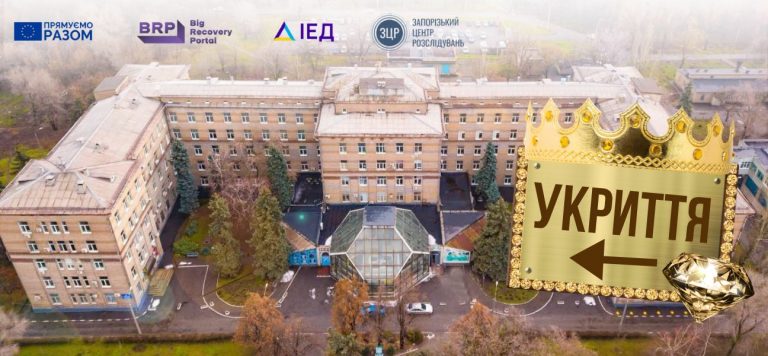 Укриття в запорізькій лікарні екстреної допомоги: завищення, лабіринт угод та підрядник зі «шлейфом»
Укриття в запорізькій лікарні екстреної допомоги: завищення, лабіринт угод та підрядник зі «шлейфом»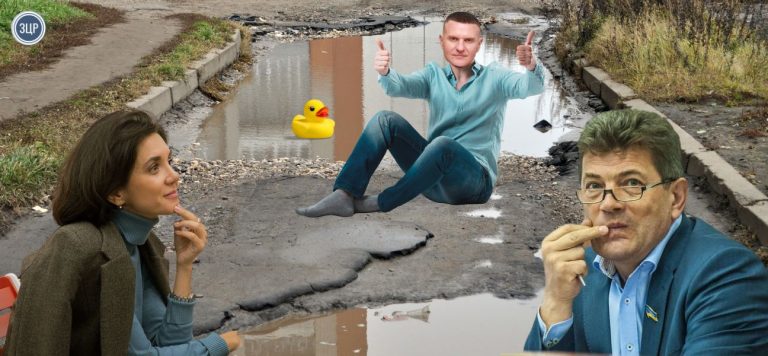 Реконструкція вулиці Шевченка у Запоріжжі: колода «Анстроїв», фірми при «Запоріжсталі» і багато політики. Частина друга
Реконструкція вулиці Шевченка у Запоріжжі: колода «Анстроїв», фірми при «Запоріжсталі» і багато політики. Частина друга


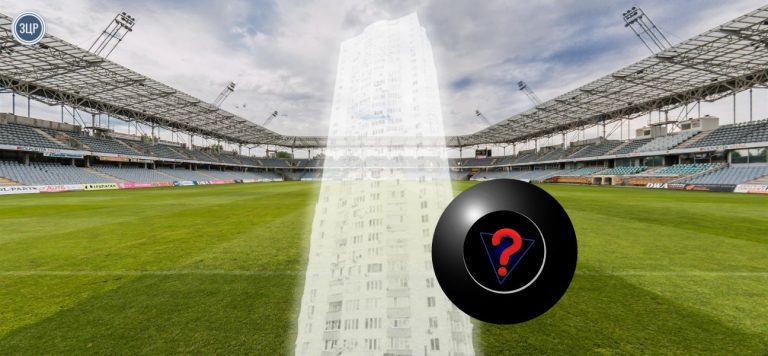
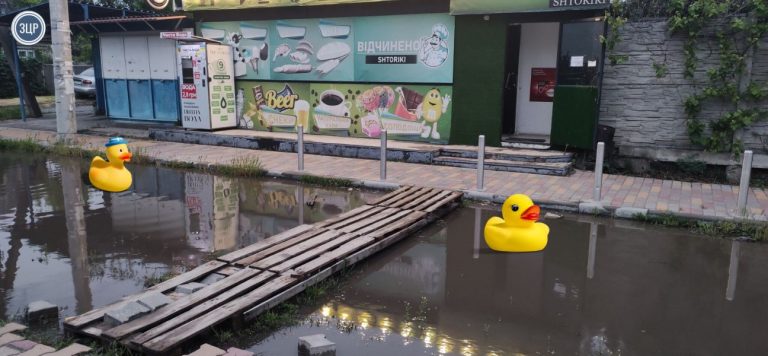
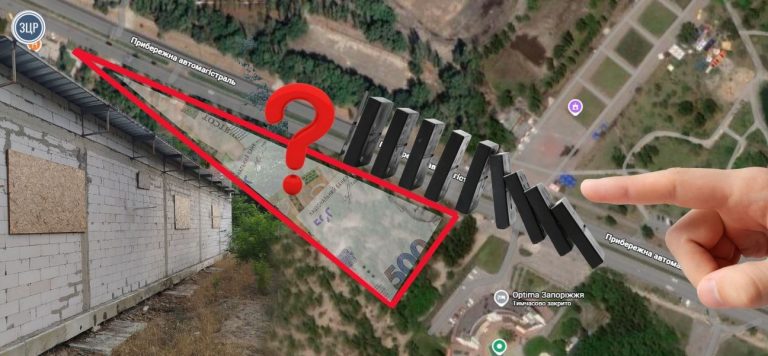
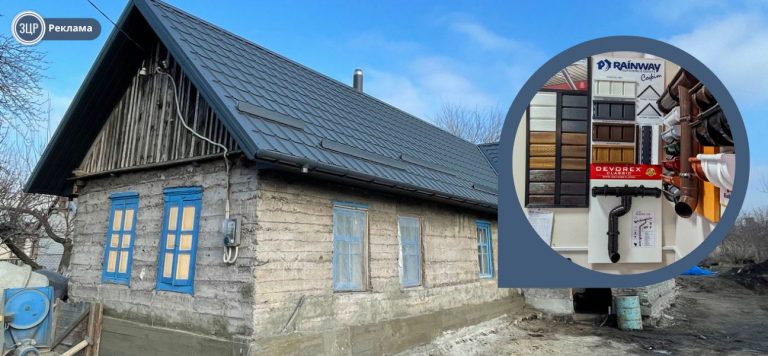
Обговорення